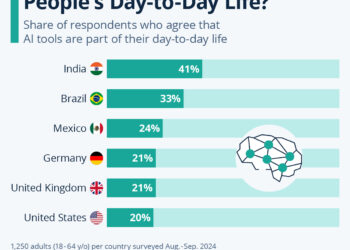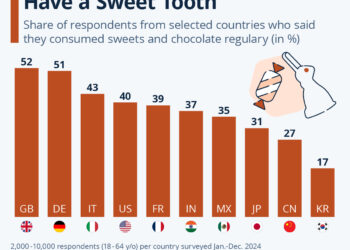Inflation: America’s Primary Concern
In the current economic landscape, inflation stands out as the foremost concern for many Americans. A recent survey conducted by YouGov and The Economist highlighted that a staggering 91% of respondents consider inflation to be a very serious or somewhat serious problem. This figure underscores the rising anxiety surrounding inflation, surpassing fears about corruption and crime, which were cited by 86% and 78% of respondents, respectively.
The Current State of Inflation
As of March, the official statistics indicated that inflation had cooled to 2.3%. Despite this seemingly positive development, the apprehension surrounding inflation remains prevalent, largely influenced by ongoing political and economic factors. The memory of the tariffs imposed during the Trump administration has led to a lingering fear of inflationary pressures reemerging, as these tariffs potentially disrupt global supply chains and increase the cost of goods.
Impact of Tariffs on Consumer Sentiment
The introduction of significant tariffs in January sparked immediate concerns among consumers. Many began to alter their spending habits in anticipation of economic instability, showcasing a notable decrease in consumer confidence. While some recovery in spending was seen in February, there remains a palpable uncertainty regarding future economic conditions.
Tariff Influence on Inflation Expectations
Economic analysts have pointed out that the effects of tariffs are twofold: while they can drive domestic prices higher, they also create a ripple effect that can influence global markets. As tariffs continue to exert pressure on industries such as steel, aluminum, and automobiles, consumers and economists are wary of potential price increases that could counter the reported decrease in inflation rates.
Concerns Beyond Inflation
While inflation captures the most attention, other economic issues are also causing concern among Americans. The U.S. government budget deficit, for instance, is viewed as a serious issue by 76% of survey respondents. This signifies that while inflation is at the forefront, other fiscal matters are also eliciting significant anxiety.
The Trade Deficit: A Less Pressing Issue
Curiously, the trade deficit is perceived as a less urgent problem, with only 62% of respondents regarding it as serious. This contrasts sharply with the considerable attention and media coverage that trade imbalances typically garner during election cycles or economic downturns. The survey results may suggest that Americans are currently more focused on the immediate impacts of inflation and government fiscal policies rather than long-term trade issues.
The Budget Deficit Debate
The ongoing discussions among Republican lawmakers regarding the 2025 budget spotlight the complexities surrounding the budget deficit. The proposed budget could either exacerbate the deficit by trillions of dollars or prompt significant cuts to essential services, such as Medicaid and the Supplemental Nutrition Assistance Program (SNAP). The implications of these discussions are profound, potentially affecting millions of Americans who rely on these programs for sustenance and health care.
Conclusion
While this blog does not include a conclusion, it is evident that inflation remains a pivotal issue for Americans. The interplay of tariffs, government fiscal policy, and consumer sentiment paints a complex picture of the current economic climate and highlights the multifaceted nature of the challenges that lie ahead.






